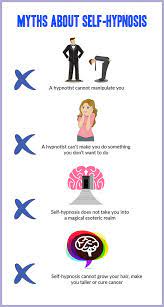Hypnosis is a fascinating practice that has been used for centuries to address various issues and promote personal growth. However, it’s important to understand that there are certain limitations to what hypnosis can achieve. While hypnosis can be a powerful tool for positive change, here are three things that it cannot do:
- Control or manipulate someone against their will: One common misconception about hypnosis is that it gives the hypnotist complete control over the individual being hypnotized. This is simply not true. Hypnosis requires the active participation and cooperation of the person being hypnotized. They must be willing and open to the process for it to be effective. Hypnosis cannot make someone do something they don’t want to do or go against their moral values.
- Retrieve lost memories with 100% accuracy: Hypnosis has been associated with memory retrieval, particularly in cases where individuals have experienced traumatic events or have difficulty recalling specific details. While hypnosis can potentially aid in memory recall, it’s important to note that memories retrieved under hypnosis may not always be accurate or reliable. Memories can be distorted or influenced by various factors, including suggestion and imagination. Therefore, any information retrieved through hypnosis should be taken with caution and corroborated through other means if possible.
- Provide a quick fix for deep-rooted psychological issues: Hypnosis can be a valuable therapeutic tool for addressing certain psychological issues such as phobias, anxiety, and smoking cessation. However, it is not a magic cure-all solution for deep-rooted psychological conditions such as clinical depression or personality disorders. These complex issues often require comprehensive treatment approaches involving therapy, medication, and other interventions tailored to the individual’s specific needs.
It’s important to approach hypnosis with realistic expectations and an understanding of its limitations. While it can offer significant benefits in many areas of personal development and well-being, it is not a panacea for all problems. Consulting with a qualified and experienced hypnotherapist can help you gain a clearer understanding of how hypnosis can be effectively utilized to support your goals and personal growth journey.
6 Things Hypnosis Cannot Achieve: Debunking Common Myths
- Hypnosis cannot make you do something against your will
- Hypnosis cannot provide superhuman abilities
- Hypnosis cannot erase memories
- Hypnosis cannot cure physical ailments
- Hypnosis cannot predict the future
- Hypnosis cannot create permanent personality changes
Hypnosis cannot make you do something against your will
Hypnosis is a fascinating practice that has captivated the minds of many. However, one important thing to note is that hypnosis cannot make you do something against your will. It is a common misconception that being hypnotized means surrendering control to the hypnotist. This couldn’t be further from the truth.
Hypnosis is a state of deep relaxation and heightened focus, where the individual becomes more receptive to suggestions. But even in this state, you maintain your own free will and autonomy. A skilled hypnotherapist will always work in collaboration with you, ensuring that any suggestions given align with your values and desires.
The power of hypnosis lies in its ability to tap into your subconscious mind, helping you access untapped potential and make positive changes. It can assist in overcoming challenges, breaking bad habits, and promoting personal growth. However, it cannot force you to do anything that goes against your fundamental beliefs or principles.
It’s crucial to choose a reputable and qualified hypnotherapist who understands the ethical boundaries of their practice. They should prioritize your well-being and ensure that all suggestions are aligned with your goals and intentions.
Remember, hypnosis is a tool for self-improvement and empowerment. It can guide you on a path towards positive change, but it can never override your free will or make decisions on your behalf. Embrace the transformative potential of hypnosis while maintaining confidence in your own agency and personal choices.
Hypnosis cannot provide superhuman abilities
Hypnosis is a fascinating practice that has captured the imagination of many. It has been portrayed in movies and books as a way to unlock hidden superhuman abilities, such as mind reading or extraordinary physical strength. However, it’s important to separate fact from fiction when it comes to hypnosis.
One thing that hypnosis cannot do is provide superhuman abilities. While hypnosis can tap into the power of the subconscious mind and enhance certain skills, it cannot grant extraordinary powers that defy the laws of nature.
For example, hypnosis cannot give someone the ability to read minds or predict the future. While hypnosis can improve intuition and enhance focus, it does not provide access to supernatural knowledge or psychic abilities.
Similarly, hypnosis cannot turn an average person into a superhero with incredible physical strength or endurance. While hypnosis can help individuals tap into their inner resources and improve performance, it does not bypass the limitations of human physiology.
Hypnosis is a valuable tool for personal growth and self-improvement, but it’s important to approach it with realistic expectations. It can help individuals overcome obstacles, change limiting beliefs, and enhance certain skills within their natural capabilities.
So while hypnosis can be transformative and empowering, it cannot provide superhuman abilities. It’s important to embrace our unique strengths and work towards personal growth within the realm of what is naturally possible for us as human beings.
Hypnosis cannot erase memories
Hypnosis is a powerful tool that can assist individuals in various ways, from overcoming fears to improving habits. However, it’s important to clarify one common misconception: hypnosis cannot erase memories.
Memories are deeply ingrained in our minds and form an integral part of who we are. While hypnosis can aid in memory recall, it cannot selectively remove or delete specific memories from our consciousness. The idea of completely erasing memories is more aligned with fictional portrayals rather than the reality of hypnosis.
During hypnosis, individuals may access certain memories more easily or experience heightened recall. However, it’s crucial to understand that these memories already exist within the person’s mind; they are not created or erased through hypnosis.
It’s also worth noting that memory is a complex process influenced by various factors such as perception, interpretation, and emotional state. Memories can be subjective and malleable, which means they can be influenced by suggestion or external factors. Therefore, caution should be exercised when relying solely on memories retrieved through hypnosis as a source of absolute truth.
If you have concerns about certain memories or experiences, it is advisable to consult with a qualified mental health professional who specializes in trauma or memory-related issues. They can provide guidance and support based on evidence-based therapeutic approaches tailored to your specific needs.
In conclusion, while hypnosis can be a valuable tool for personal growth and self-improvement, it cannot erase memories. Understanding this limitation will help ensure realistic expectations and promote responsible use of hypnosis as a supportive practice in various areas of life.
Hypnosis cannot cure physical ailments
Hypnosis is a powerful therapeutic tool that has been used to address a wide range of issues, from anxiety and phobias to smoking cessation and weight management. However, it’s important to understand that hypnosis cannot cure physical ailments. While it can complement medical treatments and support overall well-being, it is not a substitute for proper medical care.
Physical ailments require professional medical attention and diagnosis. Hypnosis cannot directly heal physical conditions such as cancer, diabetes, or heart disease. It’s crucial to consult with qualified healthcare professionals for appropriate diagnosis, treatment plans, and ongoing care.
That being said, hypnosis can play a supportive role in managing the psychological aspects of certain physical conditions. For example, it can help individuals cope with pain management, reduce stress and anxiety related to their condition, improve sleep quality, and enhance overall well-being. By addressing these psychological factors through hypnosis, individuals may experience improved quality of life and better emotional resilience during their healing process.
It’s essential to approach hypnosis as a complementary therapy in conjunction with traditional medical treatments. A holistic approach that combines medical interventions with psychological support can provide individuals with a comprehensive approach to their overall health and well-being.
If you are seeking relief from physical symptoms or have concerns about your health, always consult with healthcare professionals who can provide accurate diagnoses and guide you towards appropriate treatments. Remember that hypnosis is not a standalone cure for physical ailments but can be an effective tool in supporting your overall well-being journey.
Hypnosis cannot predict the future
Hypnosis is a powerful tool that can help individuals tap into their subconscious mind and make positive changes in their lives. However, it’s important to dispel any misconceptions about what hypnosis can and cannot do. One crucial point to understand is that hypnosis cannot predict the future.
While some people may believe that hypnosis has the ability to foresee upcoming events or provide insights into what lies ahead, this is simply not the case. Hypnosis is not a crystal ball or a fortune-telling technique. It does not possess mystical powers to reveal specific details about future occurrences.
Hypnosis primarily focuses on accessing and influencing the subconscious mind, helping individuals overcome limiting beliefs, change behaviors, and enhance personal growth. It is a therapeutic practice aimed at empowering individuals to make positive changes in their present lives.
The future is uncertain and influenced by numerous factors such as personal choices, external circumstances, and unforeseen events. Hypnosis cannot bypass these complexities or offer definitive predictions about what will happen down the road.
It’s essential to approach hypnosis with realistic expectations and understand its limitations. Instead of seeking predictions about the future through hypnosis, it’s more productive to utilize this valuable tool for personal development, self-discovery, and addressing specific challenges in the present moment.
By working with a skilled hypnotherapist, individuals can harness the power of hypnosis to gain insights into themselves, overcome obstacles, and create positive change in their lives. Remember that while hypnosis can be an incredibly beneficial practice, predicting the future remains beyond its capabilities.
Hypnosis cannot create permanent personality changes
Hypnosis is a powerful tool that can bring about positive changes in various aspects of our lives. However, it’s important to understand that hypnosis cannot create permanent personality changes. While it can help individuals modify certain behaviors or beliefs, the core of a person’s personality remains largely unchanged.
Personality is a complex and deeply ingrained aspect of who we are. It is shaped by a multitude of factors, including genetics, upbringing, life experiences, and personal values. Hypnosis can assist in addressing specific behaviors or habits that may be influenced by our personality traits, but it cannot fundamentally alter our core identity.
For example, if someone is naturally introverted, hypnosis cannot transform them into an extrovert permanently. It can help them become more confident in social situations or overcome shyness temporarily, but their underlying introverted nature will likely remain intact.
Similarly, hypnosis cannot change fundamental aspects of our character such as our values, beliefs, or temperament. If someone has a naturally cautious and risk-averse personality, hypnosis cannot make them suddenly become an adventurous risk-taker.
It’s essential to have realistic expectations when considering the potential benefits of hypnosis. While it can be incredibly effective in helping individuals achieve specific goals or overcome challenges, it is not a magical tool for complete personality transformation.
If you’re considering hypnosis for personal growth or self-improvement purposes, it’s important to work with a qualified and experienced hypnotherapist who understands the limitations of the practice. They can guide you through the process and help you achieve realistic and meaningful changes aligned with your goals while respecting the boundaries of your unique personality.




